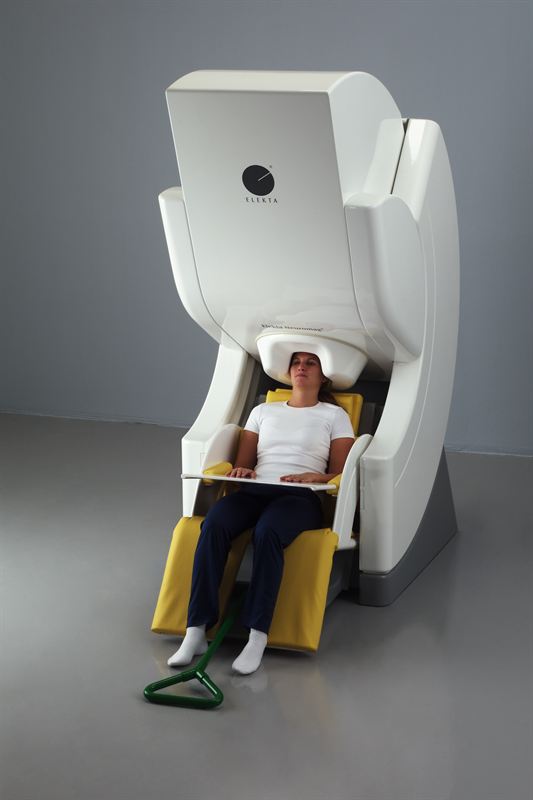FINDING HOPE FOR AUTISM – NEW BRAIN RESEARCH TECHNOLOGY CENTRE OPENED BY HRH PRINCESS ANNE
Stockholm, Sweden, October 12, 2007
The Oxford Neurodevelopmental Magnetoencephalography (MEG) Centre, featuring advanced new Elekta Neuromag® technology for the investigation of autism, has been officially opened today at the University Department of Psychiatry, Warneford Hospital, in Oxford, United Kingdom by HRH Princess Anne, The Princess Royal.
The Centre is the world's first purpose-built facility specialising in the study and research of autism and other neurodevelopmental disorders, and utilizes state-of-the-art MEG technology from Elekta. The new Centre offers an important resource for a wide community of clinicians and neuroscientists studying both normal and abnormal brain development and function.
Elekta is the world leader in advanced non-invasive technology for diagnosing and treating brain disorders with unparalleled experience in the development of magnetoencephalography (MEG) systems.
With its Elekta Neuromag MEG system, the Centre will enable the non-invasive registering of nerve cell activity in the brain in real time. The uniquely sensitive Elekta MEG technology will allow doctors and researchers to measure the intensity of extremely weak magnetic fields generated by electrical activity in the brain. This diagnostic tool increases the ability to understand and to improve treatment of functional disorders, such as autism spectrum disorders (ASD).
“The brain is the most complex structure in the human body”, explains Professor Anthony Bailey at The University of Oxford’s Department of Psychiatry. “In the investigation and treatment of brain disorders, whether it is tumors, neurodegenerative diseases or functional disorders, it is of utmost importance to gather as much information as possible about the individual patient’s brain.”
The missing piece of the puzzle
"Until now, we have not had a good enough tool to combine information about temporal and spatial localization of relevant functional centers in the brain. Using MEG technology, we can determine the function of different parts of the brain for each specific patient in the current stage of his or her development. This information can give us an important piece of the puzzle for diagnosing and plan treatment for patients with brain disorders or related diseases," says Professor Bailey.
“MEG technology is considered as one of the most exciting developments in neuroscience today. This new MEG center is step furhter in that progress”, says David Miles at Elekta Ltd, Managing Director, Business Unit UK
Higher sensitivity for better results
Elekta Neuromag with 306 MEG-channel sensor array offers a higher density than any other system on the market. With better overall coverage of the brain, the system is able to register a greater degree of brain activity then other MEG systems.
Elekta is currently also focusing on research programs for non-invasively locating epileptogenic zones, since MEG has proven useful for locating these zones in relation to other functionally important areas of the brain. It is believed that MEG technology increasingly will be used to localize functional targets prior to non-invasive radiosurgery as well as conventional neurosurgery, which is an increasingly common alternative for patients with drug-resistant focal epilepsy.
Ongoing research and development in other areas include cerebrovascular disease and mild brain trauma; psychiatric disorders, such as schizophrenia and depression; learning disorders, such as dyslexia; as well as normal cognitive functions underlying memory and language.
******
